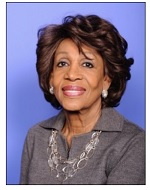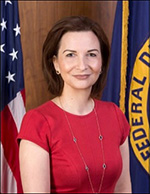Is Citigroup Under Orders from Its Regulators to Break Itself Up?
By Pam Martens and Russ Martens: January 20, 2022 ~
The last thing that Fed Chairman Powell needs in his second term are the sleazy details of the Fed’s trading scandal being released by investigators and to have to bail out the same megabank that Fed Chair Bernanke secretly bailed out from December 2007 through at least mid-July 2010. Obviously, we’re talking about Citigroup.
Citigroup has been announcing major asset sales so rapidly since December that one has to wonder if the Office of the Comptroller of the Currency and/or the Fed is cracking the whip. (We’ll get to the significant details of why that might be the case in a moment.)
On January 11, Citigroup announced that it intended to sell its consumer, small business and middle-market banking operations of Banco Nacional de México, otherwise known as Banamex. In 2017, Citigroup settled a criminal probe with the U.S. Department of Justice over money laundering at Banamex USA, involving money transactions in Mexico. As part of the settlement, the bank “admitted to criminal violations by willfully failing to maintain an effective anti-money laundering (AML) compliance program with appropriate policies, procedures, and controls to guard against money laundering and willfully failing to file Suspicious Activity Reports (SARs).” The bank paid a $97.44 million fine.
On January 13, Citigroup announced that it was selling its consumer banks in Indonesia, Malaysia, Thailand and Vietnam to UOB Group. The sale was expected to be valued at approximately $3.6 billion. Notably, Citigroup made sure to point out in its press release that it expected the transaction “to result in the release of approximately US $1.2 billion of allocated tangible common equity, as well as an increase to tangible common equity of over US $200 million.”
On January 18, Bloomberg News reported that Citigroup was in “advanced talks with Taiwan’s Fubon Financial Holding Co. for a sale of its mainland China consumer business….” Bloomberg reported that the assets “could be valued at about $1.5 billion.”
On December 23, Citigroup announced that it had “reached agreement with Union Bank of the Philippines on the acquisition of its consumer banking franchise in the Philippines.” Again, Citigroup emphasized the positive impact on its tangible common equity, stating that it expected the transaction to provide “an increase to tangible common equity of approximately $500 million.”
Tangible common equity is what federal bank regulators look at to see if a megabank like Citigroup can weather significant financial strains. In 2008, Citigroup did not weather such a storm and received the largest bailout in U.S. banking history. The U.S. Treasury injected $45 billion of capital into Citigroup; there was a government guarantee of over $300 billion on certain of its assets; the FDIC provided a guarantee of $5.75 billion on its senior unsecured debt and $26 billion on its commercial paper and interbank deposits; and secret revolving loans from the Federal Reserve while Bernanke sat at the helm sluiced a cumulative $2.5 trillion in below-market-rate loans to Citigroup from December 2007 to the middle of 2010.
Despite all that, Citigroup became a 99-cent stock in the spring of 2009 and its share price (dressed up with a 1-for-10 reverse stock split) remains down 88 percent from where it was trading pre-crisis on January 1, 2007.
Sheila Bair was the head of the FDIC during the 2008 financial crisis. In her 2012 book, Bull by the Horns, Bair makes an astonishing revelation about Citigroup. Despite the trillions of dollars in revolving loans and capital infusions used to prop up Citigroup, its federally-insured commercial bank, Citibank, actually had only $125 billion in U.S. insured deposits according to Bair.
As it turns out, the bulk of Citibank’s deposits were foreign and a large part of those deposits were not insured or had low insurance amounts. Had this foreign money decided to run for the exits on fear of a Citigroup collapse, the FDIC might have been looking at just a $125 billion problem but the rest of the financial system was looking at $2 trillion on the books of Citigroup, $1 trillion off the books, and God only knows how many trillions of dollars of derivative counterparty agreements lurking in the shadows.
Bair indicates her belief that Citigroup’s two main regulators, John Dugan (a former bank lobbyist) who headed the Office of the Comptroller of the Currency (OCC) and Tim Geithner, then President of the Federal Reserve Bank of New York, were not being forthright with the public on Citigroup’s real condition.

John Dugan, Former Bank Lobbyist; then Head of Citigroup’s Regulator, the OCC; Now Citigroup’s Board Chair
Guess who is Chairman of the Board of Directors of Citigroup today? The same John Dugan. (You can’t make this stuff up; it’s simply too Orwellian for the human brain to assimilate, which is what the denizens of Wall Street are counting on.)
The first hint that regulators were bearing down on Citigroup came when Citigroup’s Board of Directors decided to cut its CEO’s pay by $5 million from what it had been in 2019. Michael Corbat retired as CEO in February of last year, handing the reins to Jane Fraser, the first woman CEO of any major Wall Street bank.
The Board provided the following statement in an SEC filing to explain this drastic pay chuck for Corbat:
“In determining executive incentive compensation awards, the Compensation Committee reduced Mr. Corbat’s incentive compensation award based on its assessment of his performance in respect of risk and control concerns that underlie Consent Orders that were entered into during 2020 between Citi and the Federal Reserve Board and the Office of the Comptroller of the Currency, and to reflect a one-time shared responsibility adjustment which impacted the Executive Management Team for such concerns.”
The actual situation was decidedly worse than the above paragraph suggests. On October 7, 2020, when the public was focused on the vice-presidential debate that evening between Kamala Harris and Mike Pence, the Federal Reserve and Office of the Comptroller of the Currency (OCC) announced consent decrees with Citigroup’s Citibank, and levied a $400 million fine.
The OCC’s Consent Order was like nothing we have ever seen in our 35 years of monitoring Wall Street. Harsh penalties were threatened but the actual crimes or transgressions the bank had committed were not specified.
In a breathtaking sentence, the OCC reserved the right to order the firing of senior executive officers and “any and/or all members of the Board.”
A bank regulator firing an entire Board of a megabank on Wall Street is unheard of. Something very serious must have transpired to unleash such a threat.
There was a clue in the Consent Order from the Federal Reserve about something that Citigroup might have done to earn the wrath of the Federal Reserve. The Consent Order referenced the statute 12 CFR 225.4(a) which includes a section on the Federal Reserve receiving “written notice” before the bank purchases or redeems its stock when those actions over the preceding 12 months would “equal 10 percent or more of the company’s consolidated net worth.”
Bloomberg News had reported that over the prior three years, between dividends and stock buybacks, Citigroup had “returned almost twice as much money to its stockholders as it earned, according to the data, which includes dividends on preferred shares.”
At the end of the third quarter of 2008, the year of the Wall Street crash and Citigroup’s implosion, Citigroup’s federally-insured bank, Citibank, was sitting on $35.6 trillion notional (face amount) in derivatives according to data from the OCC. (See Table 1 in the Appendix.) The OCC’s most recent report for the quarter ending September 30, 2021 shows Citibank sitting on $44.37 trillion in notional derivatives. Not only was there no meaningful reform of Citigroup, but its risk profile actually increased. (See related articles below.)
If you genuinely want to save the United States from another economic and financial collapse, make the time today to call your Senators and House Rep in Washington and demand hearings on restoring the Glass-Steagall Act to separate federally-insured banks from the Wall Street casino.
Related Articles:
JPMorgan Chase and Citibank Have $2.96 Trillion in Exposure to Credit Default Swaps
The Doomsday Machine Returns: Citibank Has Sold Protection on $858 Billion of Credit Default Swaps
A Private Citizen Would Be in Prison If He Had Citigroup’s Rap Sheet
SEC: Citigroup Ran a Secret, Unregistered Stock Exchange for More than Three Years
Robert Rubin Exorcises Citigroup from His Career in Today’s NYT OpEd




